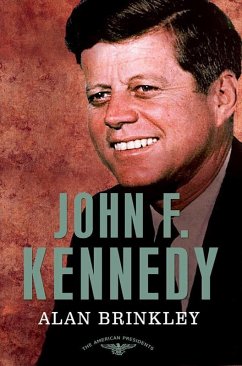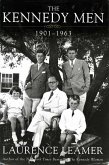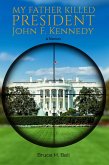The young president who brought vigor and glamour to the White House while he confronted cold war crises abroad and calls for social change at home
John Fitzgerald Kennedy was a new kind of president. He redefined how Americans came to see the nation's chief executive. He was forty-three when he was inaugurated in 1961-the youngest man ever elected to the office-and he personified what he called the "New Frontier" as the United States entered the 1960s.
But as Alan Brinkley shows in this incisive and lively assessment, the reality of Kennedy's achievements was much more complex than the legend. His brief presidency encountered significant failures-among them the Bay of Pigs fiasco, which cast its shadow on nearly every national-security decision that followed. But Kennedy also had successes, among them the Cuban Missile Crisis and his belated but powerful stand against segregation.
Kennedy seemed to live on a knife's edge, moving from one crisis to another-Cuba, Laos, Berlin, Vietnam, Mississippi, Georgia, and Alabama. His controversial public life mirrored his hidden private life. He took risks that would seem reckless and even foolhardy when they emerged from secrecy years later.
Kennedy's life, and his violent and sudden death, reshaped our view of the presidency. Brinkley gives us a full picture of the man, his times, and his enduring legacy.
John Fitzgerald Kennedy was a new kind of president. He redefined how Americans came to see the nation's chief executive. He was forty-three when he was inaugurated in 1961-the youngest man ever elected to the office-and he personified what he called the "New Frontier" as the United States entered the 1960s.
But as Alan Brinkley shows in this incisive and lively assessment, the reality of Kennedy's achievements was much more complex than the legend. His brief presidency encountered significant failures-among them the Bay of Pigs fiasco, which cast its shadow on nearly every national-security decision that followed. But Kennedy also had successes, among them the Cuban Missile Crisis and his belated but powerful stand against segregation.
Kennedy seemed to live on a knife's edge, moving from one crisis to another-Cuba, Laos, Berlin, Vietnam, Mississippi, Georgia, and Alabama. His controversial public life mirrored his hidden private life. He took risks that would seem reckless and even foolhardy when they emerged from secrecy years later.
Kennedy's life, and his violent and sudden death, reshaped our view of the presidency. Brinkley gives us a full picture of the man, his times, and his enduring legacy.
Dieser Download kann aus rechtlichen Gründen nur mit Rechnungsadresse in D ausgeliefert werden.









